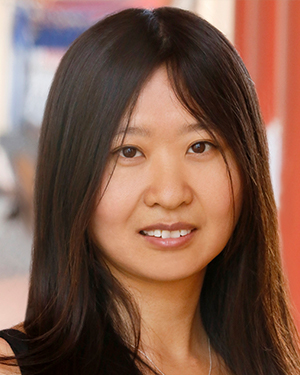Doris Tsao – Representing the visual world
Talk details
- Date: 8 December 2024
- 1 p.m. (ET)
- Location: Zoom
- Video recording
Talk abstract
From the speaker:
“How does the brain represent the visual world? Research on how the primate brain represents faces has given us a remarkable window into the processes underlying visual perception. In my talk, I will discuss the organization and feature code used by the brain's system for representing faces, the way the system represents memories, and how the system has provided a model for clarifying how the brain represents objects in general.”
Presenter
Doris Tsao is a professor of biology at the University of California Berkeley and an investigator at the Howard Hughes Medical Institute. She joined UC Berkeley in 2021, and prior to that was a professor at the California Institute of Technology from 2009-2021. She studied biology and mathematics at Caltech as an undergraduate and received her PhD in neuroscience from Harvard University in 2002. Her central interest is in understanding the neural mechanisms underlying vision. Her lab seeks to understand how visual objects and actions are represented in the brain and how these representations are used to guide behavior. Her lab is investigating mechanisms at multiple stages in the visual hierarchy, from early processes for segmenting visual input into discrete objects, to mid- and high-level perceptual processes for assigning meaningful identity to specific objects, to processes by which these perceptual representations are integrated into coherent scene representations. Techniques used include: electrophysiology, functional magnetic resonance imaging (fMRI), electrical microstimulation, optogenetics, anatomical tracing, psychophysics, and mathematical modeling.
Tsao has received multiple honors including the Sofia Kovalevskaya Award (2004), Eppendorf & Science International Prize in Neurobiology (2006), MacArthur Fellowship (2018), and Kavli Prize in Neuroscience (2024). She was elected to the National Academy of Science in 2020.


